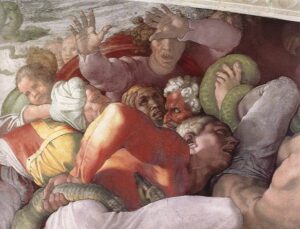This is an archive of prayers composed for, or relevant to, the health and well-being of others by or for caregivers. If you have composed a prayer for overcoming illness, for well-being, or for the success of caregivers, healers, and physicians, please share it here. Filter resources by Collaborator Name Filter resources by Tag Filter resources by Category Rosh Ḥodesh Adar (אַדָר) Alef & Bet | Addenda | After the Aliyot | During the Aliyot | Weekday Amidah | Asher Yatsar | Bedtime Shema | Bnei (Bar/Bat) Mitsvah & Other Birthday Prayers | Tehilim Book 1 (Psalms 1–41) | Child care | Congregation & Community | Dreaming | the Dry Season (Spring & Summer) | Epidemics & Pandemics | Homes & Community Centers | Incantations, Adjurations, & Amulets | 🌐 International Workers' Day (May 1st) | Mixed Dancing | Old Age | Conception, Pregnancy, and Childbirth | Repenting, Resetting, and Reconciliation | Social Justice, Peace, and Liberty | Theurgy | 🌐 Transgender Day of Visibility (March 31st) | Travel | Labor, Fulfillment, and Parnasah | Yotser Or Filter resources by Language Filter resources by Date Range
Categories: Tags: Contributor(s): Categories: Tags: אדם קדמון Adam Ḳadmon, Amoraic prayers, אשר יצר Asher Yatsar, Asiyah, Bathroom etiquette, Bathroom Prayer, Body as Cosmos, Body as Earth, Body as Society, Body as Temple, devotional interpretation, English Translation, excretion, four worlds, internal plumbing, interpretive translation, Late Antiquity, plumbing as metaphor, Prayers in the Babylonian Talmud, Prayers of Pumbedita Contributor(s): If one has had a terribly disturbing and potentially auspicious dream, this ritual recorded in the Talmud Bavli (Berakhot 55b) provides a remedy in the form of a means by which the dream itself is judged positively by a small court of one’s peers. . . . Categories: Tags: Contributor(s): Healing prayers written on a pair of amulets for the recovery of a woman named Arsinoë . . . Categories: Tags: Contributor(s): A ritual for changing a name of a sick person. This text is recorded in abridged form in Rabbeinu Yeruḥam’s 14th-century work “Sefer Toldot Adam v-Ḥava,” but is almost certainly substantially older than that considering he credits it to the Geonim. Rabbeinu Yeruḥam doesn’t include the text in its entirety, assuming familiarity with the “מְצָלְאִין אֲנַֽחְנָא” opening to prayers. This text is not, to my knowledge, commonly used in any modern rites, but I found a 15th-century Italian siddur here with a prayer that begins with the same formula in full. . . . Categories: Tags: Contributor(s): The physician’s prayer of Rabbi Dr. Yehudah ben Shmuel haLevi in the 12th century CE. . . . Categories: Tags: Contributor(s): This prayer concludes the second volume of the late Renaissance medical tome Opera Omnia by Abraham Zacutus Lusitanus (Abraham Zacuto Ⅳ), published posthumously in 1644. While his Peroratio (Conclusion) is addressed to the critical reader, I think it is crucial to read it in the context of his life as a “New Christian,” i.e., a Portuguese-Jewish physician and converso, ever vulnerable to the attention of the Inquisition or from others who might profit or take petty pleasure in his downfall. . . . Categories: Tags: Contributor(s): In Margaliyot Tovot (“Precious Pearls,” 1665), Yaaqov ben Yitsḥaq Tsahalon abridged Baḥya ibn Paquda’s Ḥovot ha-Levavot (“Duties of the Heart,” ca. 1080) and interspersed it with prayers including this prayer for healers (Tefilat ha-Rof’im) which he recommended should be recited by physicians at least once every week. . . . Categories: Tags: Contributor(s): A prayer of a physician from Markus Herz in German with its Hebrew and English translations. . . . Categories: Tags: Contributor(s): The “Tkhine of the Gate of Tears” by an unknown author presented here derives from the Vilna, 1848 edition. I have transcribed it without any changes from The Merit of Our Mothers בזכות אמהות A Bilingual Anthology of Jewish Women’s Prayers, compiled by Rabbi Tracy Guren Klirs, Cincinnati: Hebrew Union College Press, 1992. shgiyot mi yavin, ministarot nakeni. If you can scan an image of the page from the edition this was copied from, please share it with us. . . . Categories: Tags: Contributor(s): Categories: Tags: Contributor(s): “Prayer in times of bodily suffering” by Grace Aguilar was published posthumously by her mother Sarah Aguilar in Essays and Miscellanies (1853), in the section “Sacred Communings,” pp. 204-207. . . . Categories: Tags: Contributor(s): Categories: Tags: Contributor(s): Categories: Tags: Contributor(s): “Morning prayer (Almighty and merciful Father)” [in Illness] by Grace Aguilar was published posthumously by her mother Sarah Aguilar in the UK edition of Sacred Communings, pp. 117-119. It is not found in the US edition. . . . Categories: Tags: Contributor(s): “Morning hymn (Father all)” [in Illness] by Grace Aguilar was published posthumously by her mother Sarah Aguilar in the UK edition of Sacred Communings, pp. 116-117. It is not found in the US edition. . . . Categories: Tags: Contributor(s): “Evening Prayer” by Grace Aguilar was posthumously published by her mother Sarah Aguilar in Sabbath Thoughts and Sacred Communings (1853) and included in the section “Prayers in Illness,” pp. 119-121. The prayer appears between one dated 31 December 1836 and another dated 14 January 1837, along with several other undated prayers. . . . Categories: Tags: Contributor(s): “Prayer for strength under bodily affliction” by Grace Aguilar was published posthumously by her mother Sarah Aguilar in Sabbath Thoughts and Sacred Communings (1853), and included in the section “Prayers in Illness,” pp. 121-123. The prayer appears between one dated 31 December 1836 and another dated 14 January 1837, along with several other undated prayers. . . . Categories: Tags: Contributor(s): Categories: Tags: Contributor(s): Categories: Tags: Contributor(s): |



